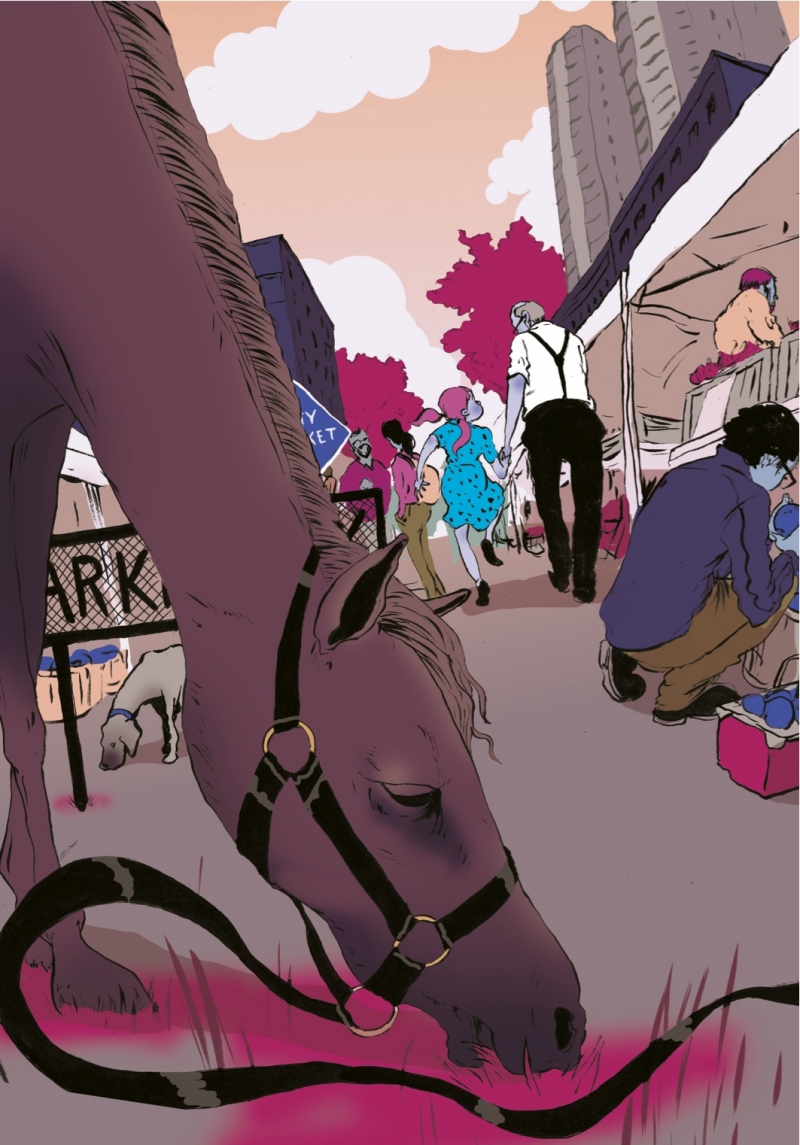Dido was as slump-shouldered, grizzled and furrow-browed as his horse was barrel-chested, sleek and serene. They stood together at the gate that separated our backyard fence from the alley, while Dido tethered the animal, somehow fitting her, and the wagon attached, onto the strip of quack grass that bordered the rutted lane. She grazed. I ran out of the house, out to her.
She? I have no idea if that plodding white beauty with the shaggy ankles was female. I don’t remember what we called her. But in this act of recollection, she has a gender, and her name is Lady.
Why “Lady?” Dido spoke little English and was unlikely to name her any such thing. Nevertheless, there was something lady like about the rotundity of her haunches, her downy muzzle, her soft nickering as her lips rolled over the apple and sugar cubes in my hand.
It is only now, more than 50 years later, that I think it’s odd that a man could drive his horse and wagon into the city and park it in a back alley without incident.
Dido and Baba were market gardeners on an acreage outside Edmonton’s city limits. It was land my parents bought for them.
We lived on 89th Street and 121st Avenue, therefore on Dido’s way to the farmers’ market downtown.
Earthy gunny sacks swollen with cabbages,potatoes, carrots and beets were piled on the wagon. And, while I have no memory of riding with Dido to market, I can easily recreate the warren of individual stalls, the right-angled wooden slats that served as a footpath among them and the musky smell of the hard-packed dirt, as I raced around.
As for Lady, she must have been “parked”behind the market, as uncomplaining as the meter in the market parking lot that stands there now.
Myrna Kostash is the author of 11 books, including 2011 City of Edmonton Book Prize winner, now The Robert Kroetsch City of Edmonton Book Prize, Prodigal Daughter: A Journey to Byzantium.
